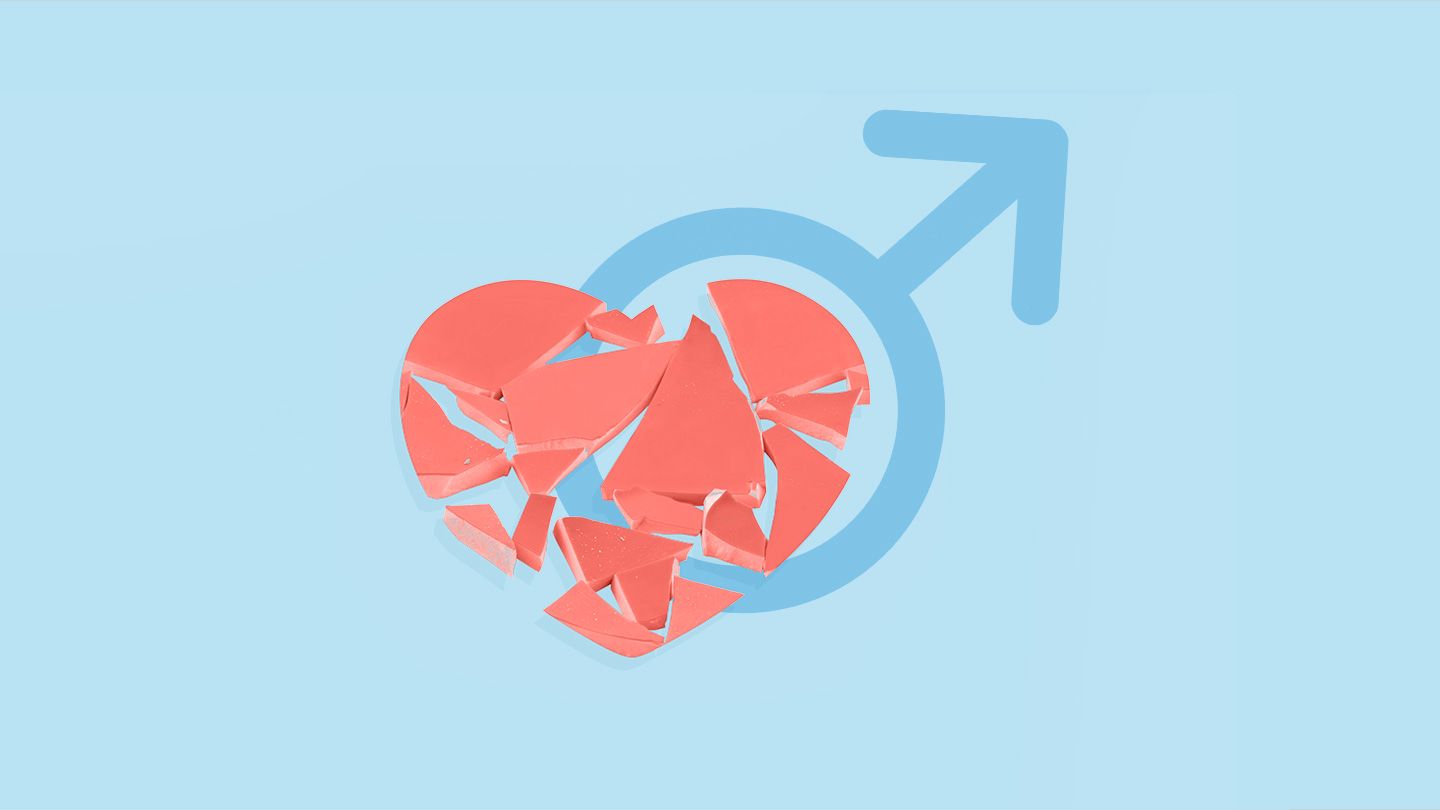Death from a broken heart may sound like something that only happens in fairy tales, but it’s a real-life condition. Broken heart syndrome, formally called takotsubo cardiomyopathy, causes heart attack-like symptoms including chest pain and shortness of breath, and is often brought on by a stressful event like a breakup or the death of a loved one.
Experts believe that broken heart syndrome occurs when bursts of stress hormones like adrenaline keep the heart from contracting properly. While most people recover quickly with no lasting damage, it can lead to severe, short-term failure of the heart muscle and even death in a small percentage of people.
Most People With Broken Heart Syndrome Are Women, but for Men It’s More Likely to Be Fatal
Using a large national hospital database, researchers identified nearly 200,000 people diagnosed with broken heart syndrome from 2016 to 2020.
Their analysis of trends, death rates, and complications found:
- The death rate for broken heart syndrome was considered high, at 6.5 percent, with no improvement over the 5-year period.
- It’s much more common in women — about 5 out of every 6 cases of broken heart syndrome are in women.
- Deaths from broken heart syndrome were more than double in men: 11.2 percent, compared with 5.5 percent among women.
- Congestive heart failure was the most common complication, occurring in 36 percent of people, followed by atrial fibrillation (21 percent), cardiogenic shock (7 percent), stroke (5 percent), and heart attack (3 percent).
- Broken heart syndrome was most prevalent in people aged 62 and older.
Men With Broken Heart Syndrome May Have Delays in Diagnosis
More research is needed to understand why the sex differences exist, according to the authors.
Men may be at higher risk for death because of a delay in diagnosis or treatment, says Abha Khandelwal, MD, a cardiologist and a clinical associate professor of medicine at Stanford Health Care in California, who wasn’t involved in the study.
“We’ve always considered this a woman’s disease, and whenever you are atypical of the presentation, you tend to have worse outcomes. Perhaps providers aren’t looking for broken heart syndrome in men,” says Dr. Khandelwal.
Men May Have Other Health Conditions That Increase Risk
“The higher risk of death for men may be due to differences in how men and women experience stress on the heart. For example, men are more likely to [come in for treatment] after physical stress, such as significant medical illness, trauma, or surgery, and often have more chronic diseases at baseline, which may predispose them to worse outcomes,” says Jeremy Slivnick, MD, a cardiologist and an assistant professor of medicine at UChicago Medicine in Illinois, who wasn’t involved in the research.
Hormones may play a role well, says Dr. Slivnick.
“Men may also have greater surges of stress hormones that can worsen heart injury. And given the worse outcomes in older women compared with younger women, there is some thought that estrogen may have a protective role in those diagnosed with the disease,” he says.
All the experts agree that more research is needed to fully understand why men are more likely to die of broken heart syndrome.
What Causes Broken Heart Syndrome?
Emotional and physical stress are the most common causes of broken heart syndrome, though about 30 percent of people who experience this cardiac crisis have no identifiable trigger.
Emotional stressors include things like grief, fear, extreme anger, and surprise.
Physical stressors are related to other health conditions or symptoms, such as stroke, seizure, high fever, asthma attack, emphysema, low blood sugar, or significant bleeding.
In addition to chest pain, symptoms of broken heart syndrome can include shortness of breath, sweating, and dizziness.
Alternately, adrenaline may bind to heart cells directly and cause too much calcium to enter the cells, which can keep the heart from beating properly.
Study Highlights Need to Improve Treatment for Broken Heart Syndrome
The paper also revealed a lack of progress in improving how many people die of broken heart syndrome — and that needs to change, says the lead author, Mohammad Reza Movahed, MD, PhD, a clinical professor of medicine at the University of Arizona in Tucson.
“Right now we treat people according to their physical symptoms, but maybe that’s not enough. Maybe we have to focus more on the anxiety and stress that often triggers the condition, as opposed to just trying to treat the medical condition,” says Dr. Movahed.
“It’s important to recognize that mental health influences cardiovascular health,” says Khandelwal.
For Chest Pain or Shortness of Breath, Call 911 Immediately
For patients and clinicians, the message is clear: Broken heart syndrome isn’t always benign, and it doesn’t look the same in everyone, says Slivnick.
“Clinicians should maintain a high level of suspicion for the disease, particularly in men given the potential for more atypical and severe manifestations at the time of diagnosis,” he says.
While there’s no guaranteed way to prevent the condition, managing stress, treating underlying health issues like high blood pressure, and calling 911 or going to the ER right away for symptoms like chest pain or shortness of breath can make a difference, says Slivnick.
Read the full article here




